Summary of the St Emlyn's Teaching Course: Key Takeaways and Innovations in Medical Education
The recent St Emlyn's Teaching Course in Copenhagen marked an exciting event, bringing together educators and clinicians to explore new methods and insights in medical education. This event, held for the first time in Europe, was characterized by a diverse international audience and a focus on integrating traditional teaching methods with modern innovations, particularly in the realm of social media and technology-enhanced learning.
Day 1: Engaging Icebreakers and Personal BrandingThe course began with an unconventional icebreaker where participants created business cards featuring a logo or symbol representing themselves, along with their name, email, and an informal skill unrelated to work. This exercise was designed to foster meaningful connections and discussions, helping participants to introduce themselves through a personal and creative lens. This approach emphasized the importance of recognizing the multidimensional nature of clinicians, highlighting their interests and skills beyond the professional sphere.
Holistic Approach to Clinician Well-beingA central theme of the course was the holistic approach to medical education, focusing on the well-being of healthcare professionals. George Willis, an emergency physician with a background in professional football, shared his insights on maintaining mental health in stressful environments. He introduced the concept of resilience as a muscle that can be trained and strengthened, but also cautioned against overworking it to avoid burnout. This metaphor emphasized the importance of prehabilitation, setting boundaries, and ensuring adequate recovery time, crucial for sustaining a long and healthy career in medicine.
Power of Personal NarrativesThe value of personal stories in medical education was underscored by Robert Lloyd, who shared his experiences working in South Africa's Khayelitsha Hospital. His honest account of the challenges faced in resource-limited settings, combined with his discussion on purposeful practice and cognitive reframing, offered valuable lessons on learning from failures and continuously improving. Robert's narrative highlighted the emotional and ethical complexities of medical practice, emphasizing the need for empathy and compassion, even under challenging circumstances.
Reflective Exercises on Identity and ValuesNatalie May led an introspective exercise called "touchstone," where participants identified their core values and priorities. This exercise was based on the idea of carrying a symbolic stone inscribed with what matters most to them, often unrelated to work. The goal was to encourage reflection on how professional decisions align with personal values, prompting attendees to consider potential trade-offs when taking on new responsibilities. This exercise was a powerful tool for fostering self-awareness and prioritization, reinforcing the course's emphasis on meta-learning and personal development.
The Social Age of LearningThe afternoon sessions shifted focus to the role of social media in medical education. Led by Celine, Julie, and Sandra, the discussion centered on Julian Stodd's concept of the "social age of learning," where social connections and collaborative learning are paramount. The faculty explored various social media platforms, debating the relevance of platforms like Twitter versus newer options like Instagram. Participants engaged in a hands-on exercise to develop a new brand for a social media presence, focusing on content strategy, target audiences, and engagement tactics. This session highlighted the potential of social media as a tool for professional development and education while also addressing ethical considerations, such as patient confidentiality and the balance between personal and professional personas.
Building Personal Learning NetworksJulie Stodd's session on personal learning networks (PLNs) emphasized their importance in ongoing professional growth. PLNs consist of a network of peers, mentors, and resources that support continuous learning. The diverse backgrounds of the course's faculty and participants exemplified the power of these networks, facilitated by online connections and shared professional interests. Julie discussed strategies for building and maintaining PLNs, including engaging in online forums, attending conferences, and seeking mentorship. The session also underscored the value of diversity within PLNs, encouraging connections across different specialties and cultures to broaden perspectives.
Reflective Practice and Looking AheadThe course concluded with reflections on the discussions and exercises, reiterating the importance of a holistic and reflective approach to medical education. The emphasis on personal well-being, the integration of personal narratives into teaching, and the strategic use of social media are all critical components of modern medical education. The upcoming sessions on simulation and feedback promised to build on these foundations, providing practical tools and techniques for teaching and clinical practice.
The St Emlyn's Teaching Course in Copenhagen was a rich learning experience, providing valuable insights and fostering a global community of educators and clinicians. The course's focus on personal growth, ethical considerations, and the effective use of technology in education highlighted the evolving nature of medical education in the social age. As the participants continue their professional journeys, the lessons learned from this course will undoubtedly influence their teaching methods and personal development, contributing to a more connected and resilient medical community.
More Episodes
Ep 253 - Highlights from the London Trauma Conference 2024
 2024-12-11
2024-12-11
 659
659
Ep 252 - ECMO in Trauma with Chris Bishop at Tactical Trauma 24
 2024-12-04
2024-12-04
 1.1k
1.1k
Ep 251 - Bad Behaviours in Teams with Liz Crowe at Tactical Trauma 24
 2024-11-27
2024-11-27
 1.3k
1.3k
Ep 250 - Monthly Round Up September 2024 - Patient Experience in the ED, Dirty Adrenaline, and More!
 2024-11-20
2024-11-20
 1.3k
1.3k
Ep 249 - Care in the Hot Zone with Claire Park at Tactical Trauma 2024
 2024-11-14
2024-11-14
 1.4k
1.4k
Ep 248 - Prehospital eCPR with Alice Hutin at Tactical Trauma 2024
 2024-11-06
2024-11-06
 1.4k
1.4k
Ep 247 - August 2024 Round-Up - Goldilocks Moments, Nasal Analgesia, and Public Health in the ED
 2024-10-30
2024-10-30
 1.3k
1.3k
Ep 246 - Simulation for Elite Team Performance with Andrew Petrosoniak at Tactical Trauma 2024
 2024-10-23
2024-10-23
 1.5k
1.5k
Ep 245 - Leading through failure with Kevin Cyr at Tactical Trauma 2024
 2024-10-18
2024-10-18
 1.9k
1.9k
Ep 244 - July 2024 Monthly Update - Chest Pain, REBOA, Lidocaine patches and lots of paediatric emergency medicine
 2024-10-06
2024-10-06
 1.5k
1.5k
Ep 243 - The Subarachnoid Haemorrhage in Emergency Department (SHED) Study
 2024-09-26
2024-09-26
 1.8k
1.8k
Ep 242 - Prehospital Neuroprotection with Ed Langford at PREMIER 2024
 2024-08-21
2024-08-21
 1.6k
1.6k
Ep 241 - Paediatric Palliative Care with Tim Warlow at PREMIER 2024
 2024-08-14
2024-08-14
 1.2k
1.2k
Ep 240 - June 2024 Monthly Round Up - Nebulised Ketamine, Risky Intubations, Better Presentations, DSED, Preoxygenation and more
 2024-08-07
2024-08-07
 1.8k
1.8k
Ep 239 - Button Battery Ingestion with Francesca Steadman at PREMIER 2024
 2024-07-31
2024-07-31
 1.4k
1.4k
Ep 238 - Positive and Negative Predictive Values: Critical Appraisal Nugget
 2024-07-24
2024-07-24
 1.3k
1.3k
Ep 237 - Hybrid Closed Loop Insulin Pumps with Nicola Trevelyan at PREMIER 2024
 2024-07-17
2024-07-17
 1.3k
1.3k
Ep 236 - Occlusive Myocardial Infarction, ECGs and AI with Steve Smith
 2024-07-10
2024-07-10
 1.9k
1.9k
Ep 235 - Eating Disorders in the Emergency Department with Anna Kyle at PREMIER 2024
 2024-07-02
2024-07-02
 1.4k
1.4k
Ep 234 - May 2024 Monthly Round Up - RCEM conference highlights, being EPIC and more
 2024-06-27
2024-06-27
 1.4k
1.4k
Create your
podcast in
minutes
- Full-featured podcast site
- Unlimited storage and bandwidth
- Comprehensive podcast stats
- Distribute to Apple Podcasts, Spotify, and more
- Make money with your podcast
It is Free
You may also like
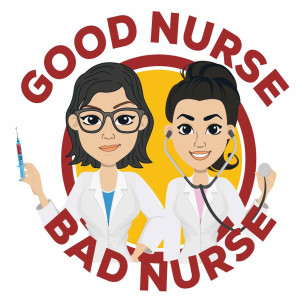
Good Nurse Bad Nurse

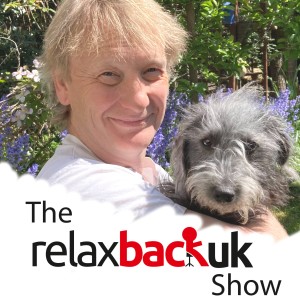
The Relaxback UK Show

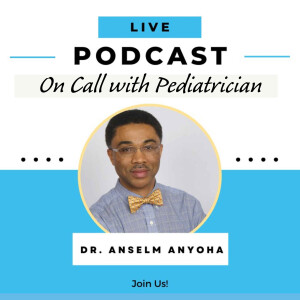
On Call With Dr. Anselm Anyoha

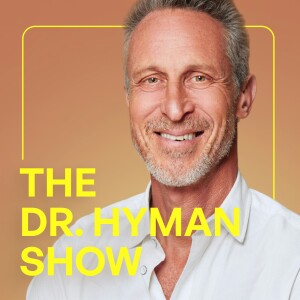
The Dr. Hyman Show

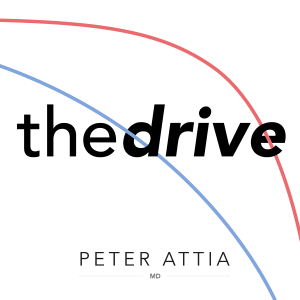
The Peter Attia Drive

- Privacy Policy
- Cookie Policy
- Terms of Use
- Consent Preferences
- Copyright © 2015-2024 Podbean.com

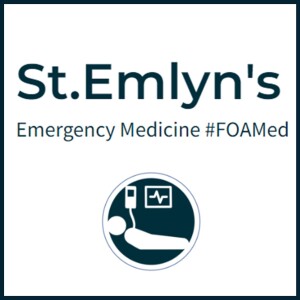
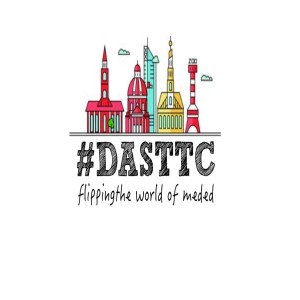

 iOS
iOS Android
Android